

Historical Research on Model Organisms in Biology
Historical Research on Model Organisms in Biology
a workshop at Cold Spring Harbor Laboratory
April 22nd - April 24th, 2018
Organizers:
Rachel Ankeny, University of Adelaide, Australia
Jane Maienschein, Center for Biology and Society, Arizona State University
Mila Pollock, Cold Spring Harbor Laboratory, New York
The workshop will convene to discuss the state of historical research on traditional model organisms and emerging and non-traditional models as well, looking at choice of organisms for research. Another focus of will be a potential collaborative effort to create a new repository of historical research on the use of model organisms in biological research.
Discussion topics will include:
- Historical study of organisms: what organisms and why?
- The origins of traditional model organisms
- Trends in organism choice, use, and funding
- Emerging model organisms
- Digital repository on the history of model organism research
The format of the workshop will include morning and afternoon/evening sessions. We expect about 20 historians and philosophers of science as well as librarians to attend.
Workshop participants:
- Tom Adams, Cold Spring Harbor Laboratory
- Rachel Ankeny, University of Adelaide
- Karina Burns, University of Adelaide, South Australia
- Sean Cohmer, Arizona State University
- Jim Collins, Arizona State University
- Nathan Crowe, University of North Carolina Wilmington
- Michael Dietrich, University of Pittsburgh
- Matthew Dunn, Cold Spring Harbor Laboratory
- Stephen Hilgartner, Cornell University
- Robert Kirk, The University of Manchester
- Manfred Laubichler, Arizona State University
- Sabina Leonelli, University of Exeter
- Kate MacCord, Marine Biological Laboratory
- Jane Maienschein, Arizona State University
- Kat Maxson Jones, Princeton University
- Robert Meunier, London School of Economics
- Nicole Nelson, University of Wisconsin-Madison
- Mila Pollock, Cold Spring Harbor Laboratory
- Erika Szymanski, The University of Edinburgh
- Neil Thompson, MIT Sloan School of Management
- Jen Walton, Marine Biological Laboratory
- Jan Witkowski, Cold Spring Harbor Laboratory
About
In keeping with the Cold Spring Harbor Laboratory Library and Archives' devotion to disseminating the treasure trove of historical information in our archives, we hosted our latest meeting of historians at the Library. The "Historical Research on Model Organisms in Biology" 3-day workshop, held from April 22-24, 2018, was a resounding success. The event gathered twenty Historians of Science, Librarians, Informationists, Archivists, and Strategists from across three continents into the spacious Szybalski Annex of the Library's Carnegie building where they had access to our large historical collections documenting the birth of molecular biology and the history of biological research on Long Island over the past 125 years.
Co-organized by Mila Pollock (Cold Spring Harbor Laboratory), Jane Maienschein (Arizona State University), and Rachel Ankeny (University of Adelaide), the workshop comprised talks ranging from the historical study of model organisms and the history of models currently used as organisms, to computational approaches to data analysis and whether the age of the model organism is ending. The close of the workshop came on the heels of exciting discussions of potential collaborative publications and exploring a scholarly guide to model organism genome sequencing projects. The organizers wish to thank all of the attendees for making the workshop such a resounding success.
Final Program
Sunday 22 April
3:00-3:15 Opening session
Welcoming Remarks
Mila Pollock
Background to CSHL
Jan Witkowski, Cold Spring Harbor Laboratory
3:15-5:30 Session 1: Historical study of organisms: what organisms and why?
3:15-3:40 Overview and goals for the workshop
Jane Maienschein, Arizona State University
3:40-4:10 Changing patterns in organisms studied: using the GEIS
(General Embryological Information Service)
Nathan Crowe, University of North Carolina Wilmington
Michael Dietrich, University of Pittsburgh
4:10-4:30 Coffee break
4:30-5:00 Computer-based approaches to mapping organism use
Sean Cohmer, Arizona State University
Manfred Laubichler, Arizona State University
5:00-5:30 Group discussion on patterns and implications
Facilitated by Rachel Ankeny
6:00 pm Reception
7:00 pm Dinner
Monday 23 April
7:30-8:30 Breakfast
8:30-3:00 Session 2: History of current model organisms
8:30-10:00 Making Organisms into Models
Rachel Ankeny, University of Adelaide
Sabina Leonelli , University of Exeter
10:00-10:15 Coffee break
10:15-12:00 Historical studies of choice and use of traditional model organisms
10:15-10:35 Fruitfly: Rachel Ankeny
10:35 -10:55 Mouse: Nicole Nelson, University of Wisconsin-Madison
10:55-11:15 Rat and Dog: Rob Kirk, The University of Manchester
11:15-11:35 Yeast: Erika Szymanski, The University of Edinburgh
11-35-12:00 General Discussion
12:00-1:30 Lunch
1:30-3:00 Historical studies of choice and use of traditional
model organisms (cont.)
1:30-1:50 C. elegans: Rachel Ankeny
1:50-2:10 Zebrafish: Robert Meunier, London School of Economics
2:10-2:30 Arabidopsis: Sabina Leonelli
2:30-3:00 General Discussion
3:00-3:30 Coffee break
3:30-5:30 Session 3: How can history inform thinking about current-day organism choice?
3:30-4:00 Emerging model organisms, model systems, and beyond
Rachel Ankeny
4:00-5:30 Discussion of session 3 using focal questions you received on day 1
Rachel Ankeny to introduce, then break into small groups
Facilitated by
Stephen Hilgartner, Cornell University
Nicole Nelson, and
Jim Collins, Arizona State University
6:00 Reception
7:00 Dinner
Tuesday 24 April
7:30-8:30 Breakfast
8:30-12:15 Session 4: Using digital repositories for tracking history
8:30-8:45 Science Is Shaped by Wikipedia: Evidence From a Randomized Control Trial
Neil Thompson, MIT
8:45-9:00 Establishing collective repositories: best practices
and strategies
Jane Maienschein and Jen Walton, Marine Biological Laboratory
9:00-9:15 The Human Genome Project: An Annotated & Interactive Scholarly
Guide: Model for repositories
Mila Pollock, Cold Spring Harbor Laboratory
9:15 -10:15 Creating a collaborative history of model organisms
research repository: structure and themes for the repository
Group discussion facilitated by Jim Collins
10:15 -10:30 Coffee break
10:30-11:15 Small group discussions on emerging themes and writing projects
Introduced by Rachel Ankeny
Facilitated by Sabina Leonelli, Jim Collins, and Nathan Crowe
11:15-12:00 Small group reporting and further discussion
12:00-12:15 Summary of the meeting and future directions
Rachel Ankeny, Jane Maienschein, and Mila Pollock
12:15-1:30 Lunch
Departure
Sponsors
We would like to gratefully acknowledge support from the following organizations, which made this conference possible.
- Cold Spring Harbor Laboratory
- Australian Government via the Australian Research Council (ARC) Discovery Project funding scheme via DP160102989: "Organisms and Us: How Living Things Help Us to Understand Our World" (2016-20).
- Arizona State University Center for Biology and Society Marine Biological Laboratory History Project, supported by the National Science Foundation
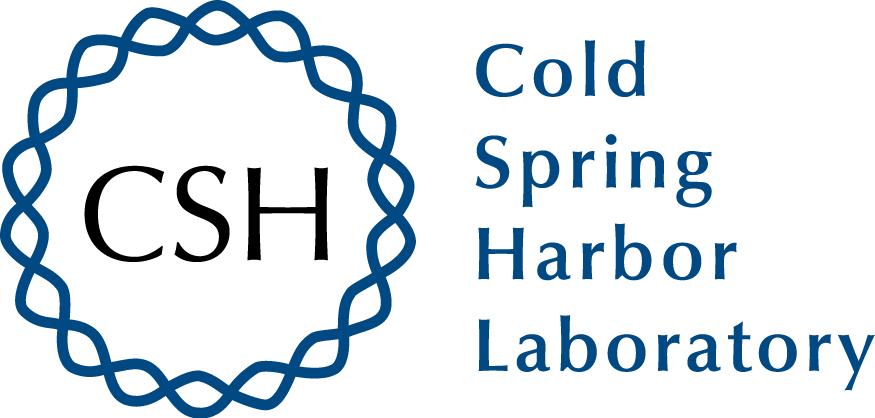

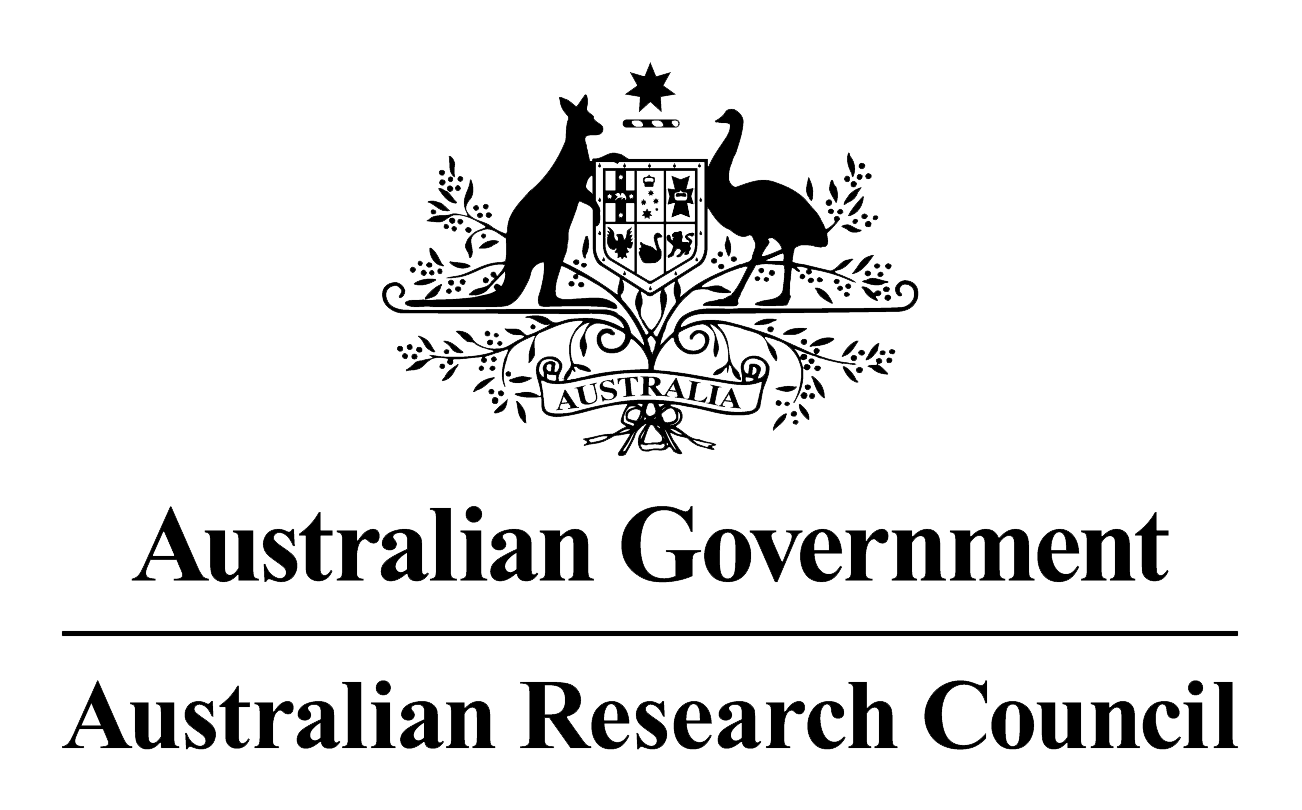
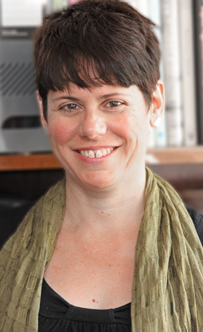
Rachel Ankeny
Rachel A. Ankeny is Professor in the School of Humanities and Associate Dean Research and Deputy Dean in the Faculty of Arts at the University of Adelaide, Australia. She is an Honorary Visiting Professor in the College of Social Science and International Studies (Philosophy) at the University of Exeter (UK), and currently serves as the Editor-in-Chief for the journal Studies in History and Philosophy of Biological and Biomedical Sciences.
Rachel has a BA in Liberal Arts (Philosophy/Maths, St John's College, Santa Fe, NM), and MA degrees in Philosophy and in Bioethics, and a PhD in the History and Philosophy of Science (all from the University of Pittsburgh, PA). She has published extensively in several fields, including history and philosophy of the contemporary biological sciences where a main focus has been model organisms.
She holds several Australian Research Council grants, including the Discovery Project "Organisms and Us: How Living Things Help Us to Understand Our World" (2016-20), which is partially funding this workshop.

Karina Burns
Karina Burns is a PhD candidate in History at the University of Adelaide, South Australia. With Honours in Psychology (Australian Psychological Society Prize Winner), and currently working under Rachel Ankeny’s ‘Organisms and Us’ project, her research interests are cross disciplinary.
Her thesis considers the history of animal research ethics in Australia, encompassing the development of animal research legislation and ethics and, specifically, the current system of self-regulated Animal Ethics Committees (AECs). Stemming from these interests, she is currently working on research concerning International comparisons of the regulatory systems in place for animal research, a consideration of wildlife versus laboratory research concerning both regulation and researcher attitudes, and a case study on the research done in the field of psychology using Australian marsupials.
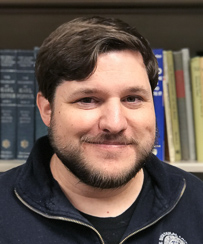
Sean Cohmer
Sean Cohmer is a PhD Candidate in History & Philosophy of Science at Arizona State University in Tempe, Arizona. His research focuses on the history of laboratory animal choices beginning in the late 19th century to the mid-20th century, especially focused on the research animal choices of Thomas Hunt Morgan.
The aim of Sean’s dissertation is to understand how choosing animals for laboratory study happened in past (what reasoning, and for what purposes), then more broadly to understand how the act of choosing had changed during this period for practicing biologists.
Sean has received Masters degrees in Biological Sciences from Arizona State University and History & Philosophy of Science from the University of Toronto.

James P. Collins
Dr. Collins has a Ph.D. from the University of Michigan and a B.S. from Manhattan College. Since 1975 he has been a faculty member at Arizona State University where he is Virginia M. Ullman Professor of Natural History and the Environment. His research group studies host-pathogen biology and its relationship to the decline of species, at times even to extinction. Dr. Collins’s research also focuses on the intellectual and institutional factors that have shaped Ecology's development as a science as well as Ecological Ethics.
Collins was founding director of ASU’s Undergraduate Biology Enrichment Program and served as co-director of ASU’s Undergraduate Mentoring in Environmental Biology and Minority Access to Research Careers programs. He was chairman of the Zoology, then Biology Department at ASU (1989-2002). At the National Science Foundation he was Director of the Population Biology and Physiological Ecology Program (1985-1986). He joined NSF’s senior management in 2005 leading the Biological Sciences through 2009. NSF is the U.S. government’s only agency dedicated to supporting basic research and education in all fields of science and engineering at all levels. Within the Biological Sciences Directorate Collins oversaw a research and education portfolio that spanned molecular and cellular biosciences to global change as well as biological infrastructure. He coordinated collaborations between NSF and other federal agencies through the President’s (George W. Bush and Barack Obama) National Science and Technology Council where he chaired the Biotechnology Subcommittee and co-chaired the Interagency Working Group on Plant Genomics. He was also NSF’s liaison to NIH and served as coordinator across NSF of all environmental research and education.
Honors include the Pettingill Lecture in Natural History at The University of Michigan Biological Station; the Thomas Hall Lecture at Washington University, St. Louis; Distinguished Lecturer in Life Science, Penn State University; President’s Science Symposium Address, Bowdoin College; Phi Beta Kappa Lifto Amundson Lecture at The University of South Dakota; Howard Hughes Medical Institute Distinguished Plenary Lecturer at the University of Delaware; and Kaeser Visiting Scholar at the University of Wisconsin-Madison. He was appointed as a Sigma Xi Distinguished Lecturer for 2018-2020. ASU’s College of Liberal Arts and Sciences awarded him its Distinguished Faculty Award and Krahenbuhl Difference Maker Award. He is a Fellow of the American Association for the Advancement of Science, a Fellow of the Association for Women in Science, and Past President of the American Institute of Biological Sciences (AIBS). Professor Collins is on the Board of Delegates for Oxford University Press and chairs the Board on Life Sciences of the US National Academy of Sciences, Engineering and Medicine. He is a former member and chair of the Board of Directors of the National Ecological Observatory Network, the Association of American Colleges and Universities, and AIBS. He served on the editorial boards of Ecology and Ecological Monographs, Evolution, and CBE-Life Sciences Education.
Dr. Collins is the author of numerous peer reviewed papers and book chapters, co-editor of three special journal issues, co-author with Martha Crump of “Extinction in Our Times. Global Amphibian Decline” (Oxford University Press, 2009), and co-editor with Ben Minteer and Jane Maienschein of “The Ark and Beyond. The Evolution of Zoo and Aquarium Conservation” (University of Chicago Press).
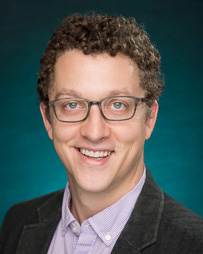
Nathan Crowe
Nathan Crowe is an Assistant Professor in the history department at the University of North Carolina Wilmington.
He received his PhD in the History of Science, Technology, and Medicine from the University of Minnesota and was a postdoctoral fellow at the Center for Biology and Society at Arizona State University.
His work broadly focuses on history of developmental biology in the second half of the twentieth century.
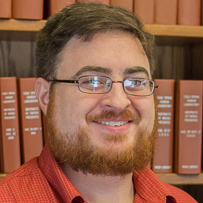
Matthew Dunn
Matthew Dunn is a Life Sciences and Science History Researcher and Writer at Cold Spring Harbor Laboratory Library and Archives and a former developmental biologist. He was most recently a National Institute of Diabetes and Digestive and Kidney Disease Postdoctoral Fellow at Stony Brook University, examining the roles of stem cells in digestive patterning and tissue regeneration in sea anemones.
Matt has a PhD in Molecular and Cellular Biology from Weill Cornell University and a BSE in Biomedical Engineering from the University of Pennsylvania. For over twenty years, he conducted research into the biological mechanisms of limb development and tissue regeneration. He has experience performing molecular biological research in numerous model organisms, including: humans, mice, chickens, frogs, sea squirts, flies, planarians, sea anemones, and several species of flowering plants. In 2016, he co-authored a chapter on the use of clades of closely-related species as model organisms in developmental biology and evo-devo.
He is also a science-fiction author, publishing under the pseudonym Matthew Shean. His work to date has appeared in InterGalactic Medicine Show and Lazarus Risen.
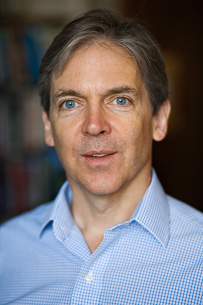
Stephen Hilgartner
Stephen Hilgartner is Professor of Science & Technology Studies at Cornell University. His research examines the social dimensions and politics of contemporary and emerging science and technology, especially in the life sciences. He is particularly interested in social studies of genomics, synthetic biology, and emerging technologies. His most recent book is Reordering Life: Knowledge and Control in the Genomics Revolution (MIT Press, 2017). Reordering Life is based on extensive fieldwork conducting during the Human Genome Project (HGP), and it provides an analysis of how new law-like regimes of governance took shape in concert with new science and technology as genomics emerged.
Hilgartner is an editor of the forthcoming Handbook of Genomics, Health and Society (Routledge), a 36-chapter collection featuring leading scholars in the field that will appear in spring 2018. Other recent publications include an edited volume on Science & Democracy: Making Knowledge and Making Power in the Biosciences and Beyond (2015) and papers in BioSocieties, British Journal for History of Science, GigaScience, the Handbook of Science & Technology Studies, and the Sociology of the Sciences Yearbook.
Hilgartner is known for his contributions to social studies of science and the sociology of knowledge. He has written numerous articles on topics ranging from synthetic biology, to risk disputes, to intellectual property, to the popularization of science, to the rise and fall of social problems. His book Science on Stage: Expert Advice as Public Drama, which examines how scientific advisory bodies work to produce credible recommendations, won the Rachel Carson Prize from the Society for Social Studies of Science. A Chinese translation was published in 2015.
Prior to joining the faculty at Cornell, Hilgartner was an assistant professor of social medicine at Columbia University. He received a PhD in sociology from Cornell University in 1988 and a Masters in Sociology from the University of Pennsylvania in 1984. He has served on the Council of the Society for Social Studies of Science, and was the chair of Cornell’s Department of Science & Technology Studies from 2007 to 2014. Hilgartner has served on study sections for the National Institutes of Health and as a grant reviewer for numerous government agencies and private foundations in North America and Europe. He is on the editorial board of six journals.
Hilgartner is a Fellow of the American Association for the Advancement of Science.

Robert G. W. Kirk
Rob Kirk is a Lecturer in Medical History and Humanities at the Centre for the History of Science, Technology and Medicine (CHSTM), University of Manchester (UK).
His work health in its broadest context understood as an emergent process shaped by historically situated interdependencies that connect human and nonhuman life to the wider planetary environment. His research is focussed on the place of non-human animals in human cultures, particularly nonhuman roles in science, medicine and technology as well as the place of animals in history and historical writing. Rob is interested in how lived relationships drive historical change, shaping the always emergent cultures, identities, knowledge, practices, and values which make up our changing understandings of health and wellbeing.
A recurrent concern in Rob’s research is the relationship between the use of animals in scientific research and the growth of concern for the health, welfare and wellbeing of animals in wider society. He has examined how animal welfare became integrated within twentieth-century animal research, reconstructing historical trends such as the professionalization of animal care and the development of the 3Rs (an approach to experimentation prioritizing replacement, reduction and refinement of animal use). To further develop this work, Rob is exploring the humanities and social sciences might productively collaborate with and contribute to the activities of animal research practitioners and policy community. Supported by a Wellcome Trust Collaborator Award, he is working with Gail Davies (Exeter), Pru Hobson-West (Nottingham), Beth Greenhough (Oxford) and Emma Roe (Southampton), leading a team investigating how the humanities and social sciences might contribute to understanding and advancing laboratory animal science and welfare. We have published a collective agenda for ‘Humanities and Social Scientific Research on Laboratory Animal Science and Welfare’ to this end. A more participatory approach, we hope, will create new shared ways of understanding, responding to and practicing animal research. To achieve this we seek to understand animal research as ‘nexus’ emphasising overlaps between topics previously considered separately. Our nexus approach examines independencies between disciplines, the challenges arising from overlooked connections, and the opportunities for more collaborative research, policy and public engagement. We suggest that making visible and reconceptualising connections and interdependencies across animal research will generate communication and foster the development of shared understanding which in turn contributes to improved animal research. (www.animalresearchnexus.org)
Rob is also investigating how human-animal relations shape and potentially sustain health and wellbeing in society. Supported by a Wellcome Trust Investigator Award, this research asks how our perceptions of medicine might change if health and wellbeing were thought of as more than human concerns. It explores how medicine has formed various partnerships with nonhuman species, such as the use of maggots in wound healing or assistance animals such as the ‘guide’ dog. By reconstructing the historical development and current use of varied examples of what we might call 'multispecies medicine', Rob aims to open up new perspectives on medicine, health and our changing relations to nonhuman life in society (www.multispecies.org).
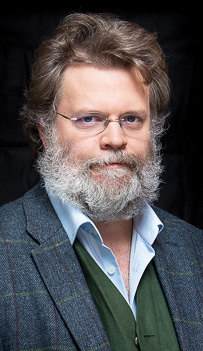
Manfred Laubichler
Manfred D. Laubichler is President’s Professor of Theoretical Biology and History of Biology at Arizona State University and a Professor at the Santa Fe Institute. At ASU he directs the Global Biosocial Complexity Initiative and the ASU-Santa Fe Institute (SFI) Center for Biosocial Complex Systems.
Besides his appointments at ASU and SFI, Laubichler is also affiliated with the Max Planck Institute for the History of Science in Berlin, Germany, Leuphana University, Lüneburg, Germany and the Marine Biological Laboratory in Woods Hole, MA.
His work is on evolutionary theory, complexity theory and computational history/history of science.
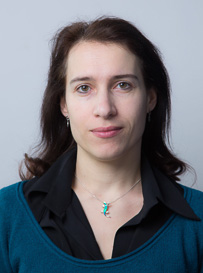
Sabina Leonelli
Sabina Leonelli is professor in philosophy and history of science at the University of Exeter, UK, where she co-directs the Exeter Centre for the Study of the Life Sciences and leads the “Data Studies” research strand. Her research focuses on the methods and assumptions involved in the production, dissemination and use of big data for discovery; the ethical and social challenges involved in the extraction of knowledge from digital infrastructures; the ways in which the open science movement is redefining what counts as research and knowledge across different research environments; and the epistemic status of experimental organisms as models and data sources. She has worked and published on the history of Arabidopsis thaliana and related research developments and data infrastructures since 2004, and serves on the steering board of GARNet (UK coordinating body for plant scientists working on Arabidopsis) and the European Arabidopsis Stock Centre (NASC). Her work involves collaborations with natural and social scientists, and historians; involvement in science policy initiatives such as the implementation of the Open Science Agenda of the European Commission; and multiple sources of funding including a European Research Council award to work on the epistemology of data science (2014-2019) and an Australian Research Council Award (led by Rachel Ankeny) to investigate the epistemic role of organisms in research. She has published widely within the philosophy of science as well as biology and science and technology studies, and her monograph Data-Centric Biology: A Philosophical Study appeared in 2016 with Chicago University Press.
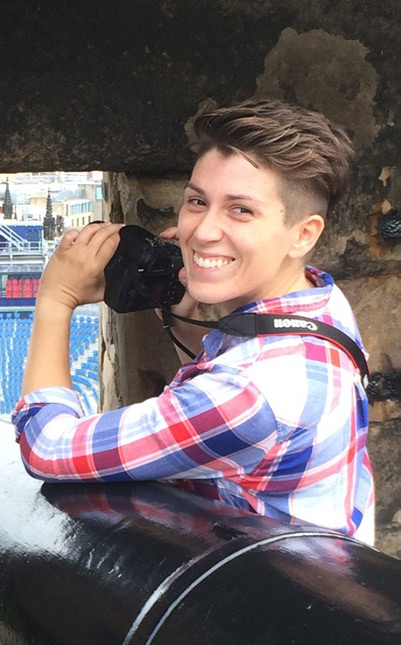
Kate MacCord
Kate is the Program Administrator of the McDonnell Initiative (funded by the James S. McDonnell Foundation) and McDonnell Foundation Fellow at the Marine Biological Laboratory (MBL) in Woods Hole, MA, where she works to bring researchers from HPS together with scientists in order to transform discovery. She also holds an Adjunct position at the Center for Biology and Society at Arizona State University (ASU). She received her PhD in History and Philosophy of Science in 2017 from ASU, in which she investigated the history of the intersection of development and evolution within research on mammalian teeth. Kate spent a Fulbright year with the evolutionary phenomics laboratory of Jukka Jernvall at the University of Helsinki. During her PhD studies, Kate managed the MBL History Project, wrote and edited for the Embryo Project Encyclopedia, worked as a Project Coordinator for the Center for Biology and Society at ASU for four years, and was a developing editor for Harvard University Press for Lucie Laplane’s book, Cancer Stem Cells.
Kate’s current research focuses on the history and philosophy of research at the intersection of development and evolution with particular interest in how investigators have understood the role of morphogenesis in these processes, and the roles that assumptions play within scientific practice and explanations. She is developing a new research project along with MBL scientist, Duygu Ozpolat, about the history and philosophy of annelid regeneration. Following a recent History of Science Society session that Kate organized, called “The Roles of Assumptions in Shaping the History of Science”, she and other participants are arranging a special section for publication about the roles of assumptions in paleontology within History and Philosophy of the Life Sciences. Kate has served as the coordinator for the Digital History and Philosophy of Science Consortium (dHPS), and the student representative for the History of Science Society/Philosophy of Science Association’s Joint Caucus for Socially Engaged Philosophy and History of Science (JCSEPHS). She is currently working with the editors of the journal Studies C to develop a podcast series.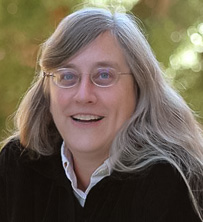
Jane Maienschein
Jane Maienschein specializes in the history and philosophy of biology and the way biology, bioethics, and bio-policy play out in society. She also serves as Fellow and directs the History and Philosophy of Science Project at the Marine Biological Laboratory in Woods Hole, Massachusetts.
Professor Maienschein and her team focus on embryology, genetics, and cell biology. They analyze epistemological standards, theories, organism choice, and laboratory practices and combine that with their studies of people and institutions, as well as the changing social, political, and legal context in which science thrives.
She served as fellow with the U.S. House of Representatives during the 105th Congress. Professor Maienschein has filled many leadership roles at ASU and with professional societies, panels with NIH, NSF, NEH and committees at the National Academy of Sciences. Founder and director of the Biology and Society Program and Center, she promotes education and research at the intersection of biological science and society.

Kathryn Maxson Jones
Kathryn Maxson Jones, M.A., obtained her B.S. in Biology (summa cum laude), with minors in Chemistry and History, from Duke University in 2010. From 2010 through 2013, she served as a Research Aide in the Center for Public Genomics (CPG), a Center of Excellence in Ethical, Legal, and Social Implications (ELSI) Research for genomics co-funded by the National Human Genome Research Institute and the Department of Energy. While at the CPG, with Robert Cook-Deegan (now of ASU) and Rachel Ankeny (the University of Adelaide), she led the research for a multi-year project investigating the history and implications of the “Bermuda Principles,” the policies that mandated the release of DNA sequences generated by the Human Genome Project (HGP) onto the Internet within 24 hours. This work led to several co-authored publications, including in the Annual Review of Genomics and Human Genetics (2017) and the Journal of the History of Biology (forthcoming 2018), as well as an extensive digital repository of primary sources (https://dukespace.lib.duke.edu/dspace/handle/10161/7407). In their joint publications, Maxson Jones, Ankeny, and Cook-Deegan have consistently argued that these radical policies for sharing arose in the HGP directly from norms and strategies tested within the “community” of C. elegans researchers, and were championed for human genomics in the 1990s by the leading nematode biologists John Sulston and Robert Waterston. Because they proved aspirational and flexible and were often not interpreted literally, moreover, the Bermuda Principles became grant policies for several of the HGP’s government and non-profit funders, and have been extended to “community resource projects” in biology.
In 2013, Maxson Jones began graduate work in the Program in History of Science at Princeton University, where she completed her M.A. in 2015. Under the supervision of Angela Creager, she is presently writing her dissertation, which focuses on how neurons came to be conceived as molecular entities whose functions could be described, and explained, using the languages and tools of chemistry, physics, and mathematics. Beginning with the “station movement” of the mid-nineteenth century and continuing to the present, and exploring the work of actors including Emil du Bois-Reymond, Haldan Hartline, Kenneth Cole, J.Z. Young, Alan Hodgkin, Andrew Huxley, John Moore, Stephen Kuffler, Francis Schmitt, Ann Stuart, and Eric Kandel, she traces the changing epistemological and material statuses of neurophysiological preparations derived from aquatic species including electric fish, arthropods, crustaceans, and cephalopods, especially squid. In so doing, she is investigating the production of empirical generality and generalizable models from these preparations, paying close attention to how this watery history intersected with the mass entrance of molecular biologists into neurobiology, and the consolidation of “neuroscience” as a discipline, in the 1960s.
Alongside her dissertation, Maxson Jones maintains active research interests in emerging model organisms in neuroscience and the histories of bioluminescence and computing in biology. She has taught courses on the histories of genomics and the Internet, science policy, the Scientific Revolution, and neuroscience. She lives in Lafayette, IN with her husband T. Cole Jones, who teaches early American cultural history at Purdue University. Her guilty pleasures include track and field and Islay Scotch whisky. For 2018-2019, she will serve as a McDonnell Foundation Scholar at the Marine Biological Laboratory in Woods Hole, MA.
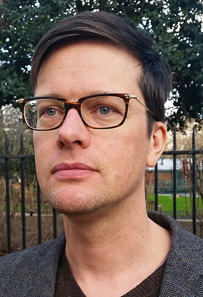
Robert Meunier
Robert Meunier currently works as postdoc in the ERC funded Narrative Science Project (PI Prof. Mary S. Morgan) at the Department for Economic History at the London School of Economics and Political Science. In 2012 Robert graduated from the PhD program “Foundations of the Life Sciences and their Ethical Consequences”, jointly hosted by the University of Milan and the European School of Molecular Medicine in Milan. Since then he was a postdoctoral research fellow at the Max Planck Institute for the History of Science (2012) and the Institute for Cultural Inquiry (2012-14) in Berlin, as well as a research associate at the Department of History (History of Science) at the LMU Munich (2014). From January 2015 to March 2017, Robert was research associate at the Department of Philosophy (Theoretical Philosophy) at the University of Kassel, to where he will return as PI of the project “Forms of knowledge, forms of practice” in August 2018.
Robert works on the history and epistemology of the life sciences in the long 20th century, focusing on the ways in which different forms of practice yield different forms of knowledge and thus engender the dynamic relations among research fields in biology and biomedicine. He is particularly interested in the epistemic roles of various elements in experimental systems, including model organisms, and their influence on the ways in which knowledge is generated and transferred. In the latter regard, Robert’s work is particularly concerned with the relation of biology and biomedical research fields and applications. Robert has published on the history and philosophy of model organism based research practices regarding the use of Zebrafish and Drosophila in developmental genetics research programs.

Nicole Nelson
I am an Assistant Professor in the Department of History at the University of Wisconsin–Madison. My other affiliations are with the Medical History and Bioethics department and the Holtz Center for Science and Technology Studies. Previously I was a postdoctoral research fellow in Social Studies of Medicine at McGill University.
My research examines scientists’ assumptions about the natural world and how these assumptions shape scientific practice. In my book, Model Behavior, I explore how animal behavior geneticists’ beliefs about the complexity of gene action and of psychiatric disorders are reflected in their research with mouse models. For this work I won a First Book Award from the UW–Madison Center for the Humanities. My next project will focus on the “reproducibility crisis,” a recent phenomenon where scientists have discovered that many established findings are difficult or impossible to replicate on subsequent investigation. I am interested in what assumptions scientists make about variation, and how these assumptions about the nature and magnitude of variation inform reproducibility efforts—researchers may be unsurprised to find, for example, that results vary between sexes, but much more concerned by variation between laboratories.
I also do research on new technologies in oncology research and clinical practice. As an embedded ethnographer in a trial investigating resistance to chemotherapy, I observed researchers as they introduced genomic technologies into existing clinical research routines. Work from this project, conducted in collaboration with Alberto Cambrosio and Peter Keating, has been published in Social Science & Medicine and New Genetics and Society. Currently I am conducting research with Pilar Ossorio on machine learning algorithms in oncology, where algorithms are now routinely used to estimate a patient’s risk of reoccurrence of their cancer.
At UW–Madison, I direct the Health and the Humanities undergraduate certificate program, and teach courses in science and technology studies, biology and society, and history of science. I have won numerous awards for my undergraduate teaching.
I am a Collaborating Editor for the journal Social Studies of Science, where I manage the review process and make decisions on a subset of manuscripts submitted to the journal. I’m also on the editorial board for the journal New Genetics and Society and was the reviews editor at Social Studies of Science.
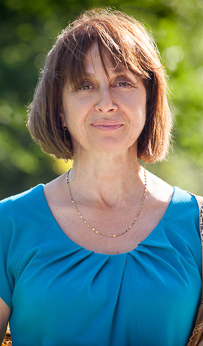
Mila Pollock
Mila Pollock, MLIS, has been Executive Director of the Cold Spring Harbor Laboratory Library & Archives, since 1999, and has led the Genentech Center for the History of Molecular Biology and Biotechnology since its founding in 2006. The internationally recognized CSHL Archives consists of collections of rare books in genetics and the collections of original materials of prominent scientists, which provide deep insight into the history of molecular biology and genetics.
Mila has conceived and spearheaded numerous special projects, including the acclaimed CSHL Oral History Project: Talking Science, for which she interviewed more than 150 prominent international scientists in molecular biology, genetics, and biotechnology; Human Genome Project Documentary History: An Annotated Scholarly Guide to the HGP, 2016 which features a rich gathering of resources, information and links to original research, articles and videos. She is a co-editor of the upcoming book Faces of the Genome, in Press, 2018.
Mila initiated the History of Science series of international meetings at CSHL, each of which is focused on the origins and development of a specific field in genetics and biotechnology: http://library.cshl.edu/Meetings/History-of-Science/ She has curated exhibitions which have travelled to venues around the world. She is a member of the American Association for the Advancement of Science; the International Society for the History, Philosophy, and Social Studies of Biology; and many other professional organizations. Mila received an MLS and an advanced degree in scientific retrieval and theory in Russia and a second MLS from St. John’s University, NY.
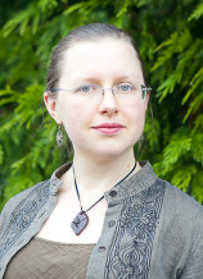
Erika Amethyst Szymanski
Erika Amethyst Szymanski is a research fellow in Science, Technology, and Innovation Studies at the University of Edinburgh, where she studies human-yeast relationships and how contemporary genetic biotechnologies change those relationships. As part of the “Engineering Life” project, led by Dr. Jane Calvert and funded by the European Research Council, Erika has spent the past two years working with the synthetic yeast project, an international consortium of synthetic biologists building the first full eukaryotic genome from laboratory-synthesized DNA. As part of the “Medical Translation in the History of Modern Genomics” (TRANSGENE) project, led by Dr. Miguel Garcia-Sancho and also funded by the European Research Council, she is beginning historical work on yeast genome sequencing with a focus on the construction of a single, powerful reference sequence in the early 1990s. Across both of these projects, she is interested in how yeast has been constructed as a tractable research organism, how ancient fermentation practices and contemporary food and beverage industry interests have shaped scientific research with yeast, and how yeast actively participates in human-yeast coworking situations.
Before moving to Edinburgh, Erika completed her PhD in science communication at the University of Otago in New Zealand, where she investigated how winemakers and winegrowers use scientific information and developed rhetorical strategies for wine science writing that construct scientific and practical knowledges as complementary rather than implicitly hierarchically related. Her interests in critical rhetorics of wine science communication were motivated by previous work in wine microbiology and writing studies, including Masters degrees in microbiology at the University of Rochester and in composition and rhetoric at Washington State University. She remains interested in science writing pedagogy, wine as a scientific and cultural object, and rhetorics of interdisciplinarity.
Work from the synthetic yeast project is forthcoming in Environmental Humanities and BioSocieties. Erika's previous work has appeared in journals including Science Communication, Written Communication, The Journal of Wine Research, Across the Disciplines, and the Journal of Extension. Erika also writes about wine science and technology for the Australian Wines and Vines Journal and her blog at wineoscope.com, and has previously written for other general-interest and industry-focused publications including Palate Press and Wine Business Monthly. Her wine writing has been recognized by a Louis Roederer Emerging Wine Writer of the Year award and the Born Digital Prize for best investigative piece. She is currently the senior representative for the student section of the Society for Social Studies of Science.
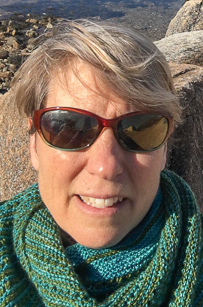
Jennifer Walton
Jennifer Walton is the Co-Director MBLWHOI Library, Director of Library Services at Marine Biological Laboratory (MBL). She serves as the MBL archivist and Special Collections Librarian. Her focus is on outreach and education, making collections available to scholars and students. She has an MLIS from Simmons College.
Travel & Location
Cold Spring Harbor Laboratory is located on the North shore of Long Island, New York. There are many transportation options available.
- Three area airports: JFK, LGA and ISP
- Long Island Rail Road (LIRR)
- Long Island Sound Ferries: Cross Sound Ferry (from New London, CT) and Port Jefferson Steamboat Company (from Bridgeport, CT)
- Long Island Expressway (I-495)
- Local Shuttles and Taxis

CSHL Main Campus Location

By Train:
From New York City (NYC)
The Long Island Rail Road (LIRR) runs trains between Penn Station in New York City and Huntington, Long Island. From Pen Station, board the Huntington bound train and get off at the Syosset station. CSHL provides a complimentary shuttle service from Syosset train station to the CSHL campus. Check the CSHL Shuttle Schedule for pickup times. The shuttle will wait at the North side of the tracks, close to the pedestrian overpass. When the shuttle is unavailable, use the local taxi listed below.
Be aware there is a Cold Spring Harbor station, but the lab shuttle does not stop there.

By Local Taxi:
From the Syosset train station
Syosset Taxi: (516) 921-2141, Rates (estimated): 1 person ride - $9.00 - 2 person ride - $6.00 per person.
**We do not recommend Island Taxi or Oyster Rides taxis.**

By Plane:
JFK, LGA & ISP
JFK and LaGuardia airports are located 45-90 min travel time depending on Long Island traffic (which can be bad!). Islip/McAuthur Airport is located on Long Island approximately 40-60 min away.
Airport shuttles or car services can then be used. For JFK airport, the AIRTRAN JFK is an additional option.
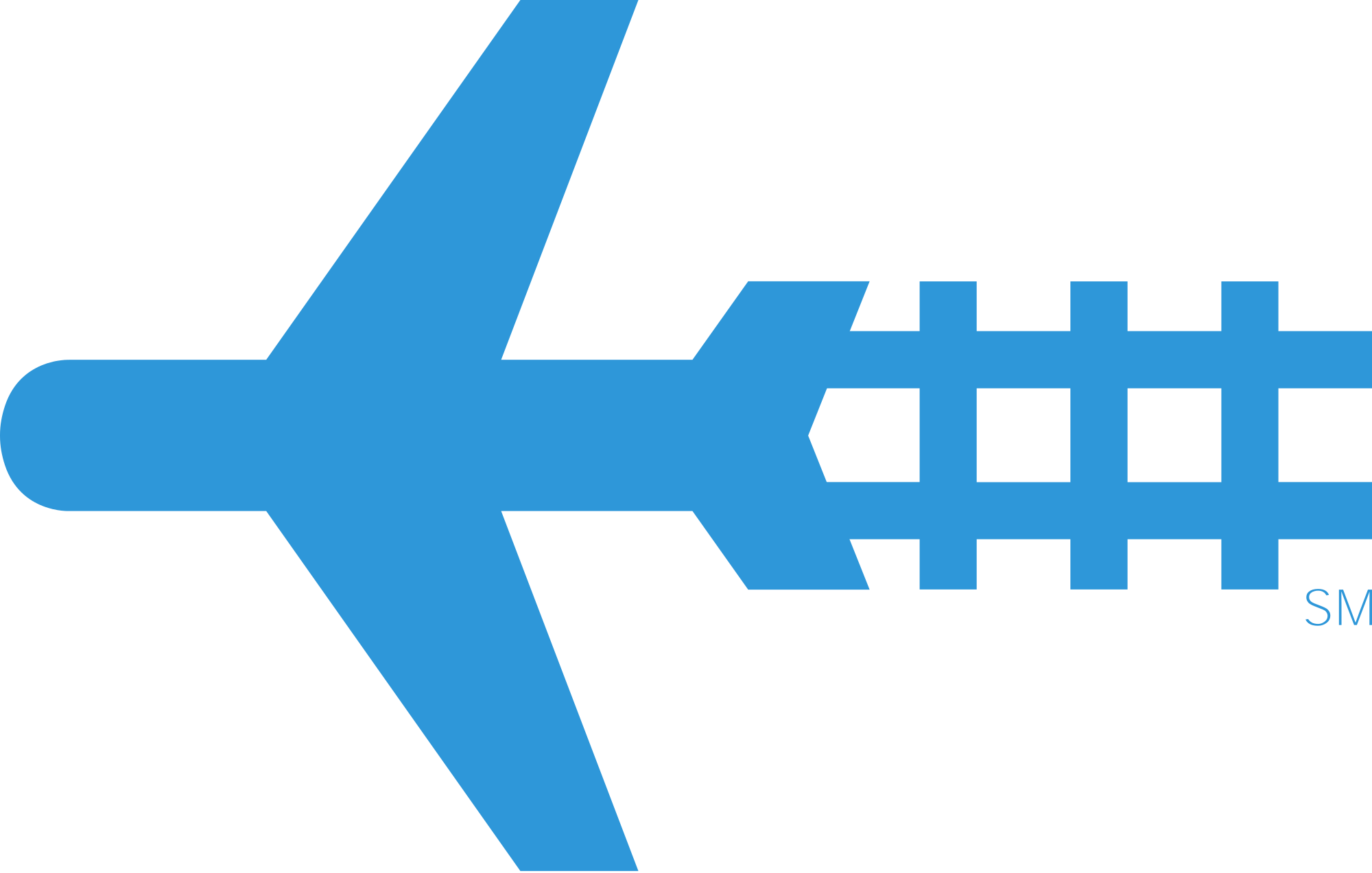
AIRTRAIN JFK
From JFK Airport
The AIRTRAIN JFK runs between JFK airport and the LIRR's Jamaica train station in Queens/NYC. The AIRTRAIN conveniently stops within the airport terminals themselves. The cost is currently $5, and is paided when you exit into the LIRR's Jamaica Station.
From Jamacia train station, a Huntington bound train can take you to the lab. See the By Train directions, above.

By Airport Shuttles & Car Services:
From New York City (NYC)
*NOTE: Before accepting car service from a driver at the airport, please be sure to request proper identification bearing the Cold Spring Harbor logo or of the service providers mentioned below. Recommended Car Service providers from JFK and LaGuardia airports to CSHL (avoid rides from independent or unlicensed taxis)
SYOSSET LIMOUSINE SERVICE (SLS)
516-364-9681 or 516-364-9681 - 2018 RATES
RESERVATIONS reservations@syossetlimo.com SLS provides transportation to and from JFK & Islip Airport, Manhattan and the tri-state area.
LIMOS LONG ISLAND
1-833-LiLimos (545-4667), ext.: 3 or 516-400-3364, ext.: 3
Effective Wednesday, April 5th, all passengers utilizing a car service for pick up at LGA airport coming into TERMINAL B will need to take a Port Authority shuttle bus or walk to parking field 10 (car service holding area) due to construction taking place at the airport. For more information regarding a pick up at LGA airport Terminal B, please click on the following link: http://laguardiaairport.com/news/fhv-pick-up/

By Car:
From NYC and points west:
Take I-495 E toward Eastern Long Island to exit 41N for New York 106/107 toward Oyster Bay. Turn right onto 107N for about 1 mile then another right onto 106N for 3.5 miles.
Make a right onto Northern Blvd 25A and travel 4 miles until you reach a traffic light and Bungtown road will be on your left.
From points south:
Take Southern State Pkwy to exit 28AN merge onto Seaford Oyster Bay (NY-135N) towards Syosset.
Proceed to exit at 14E for New York 25 E toward Woodbury. Make a left onto South Woods road and drive for 1.6 miles then turn right onto Cold Spring road for about 1 mile.
Continue onto 25A for about 1 mile until you reach a traffic light where Bungtown road will be on your left.
From points east: Islip Airport:
Travel on NY-454 W until you reach I-495 W. Proceed left onto I-495 W via ramp towards New York.
Take exit 51 towards NY-231/Babylon/Northport. At traffic light turn right onto Deer Park Ave.
Take Country Road 35 N to Main Street 25A. Continue on 25A for about four miles until you reach a traffic light and Bungtown road will be on your right.

Car Rentals:

135 W. Jericho Tpke.
Huntington Station, NY
(631) 271-9300
Nationwide (800) 331-1212

338 East Jericho Tpke.
Huntington Station, NY
(631) 424-2500

145 West Jericho Tpke.
Huntington, NY
(631) 427-6106
Materials from CSHL Archives
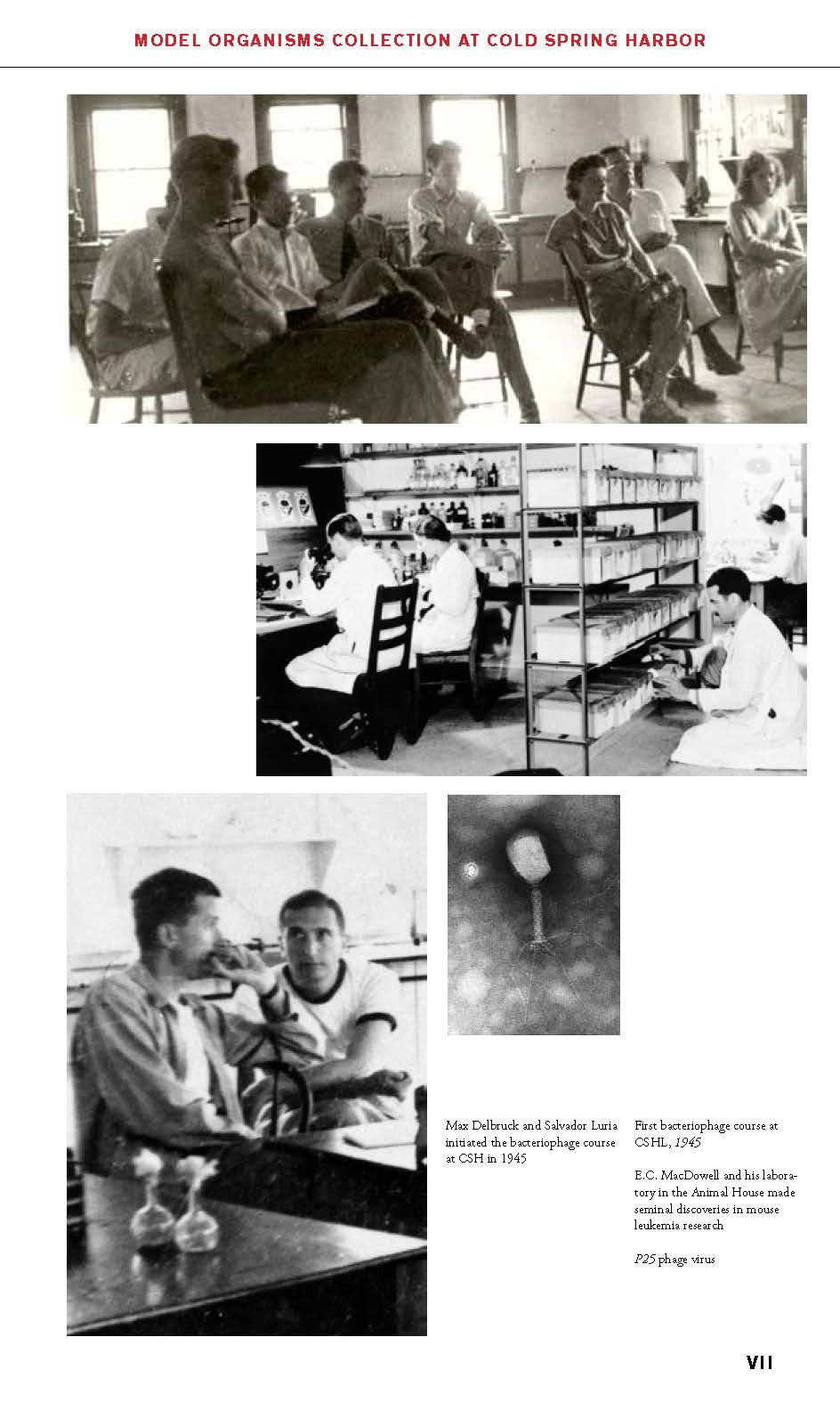
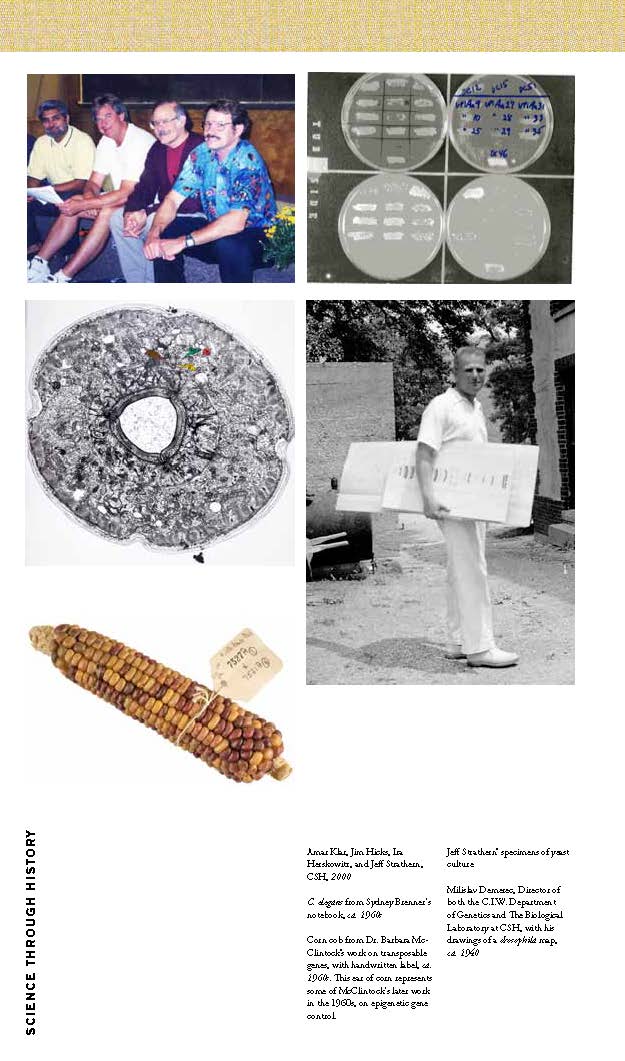
Copyright © 2018 Cold Spring Harbor Laboratory.
Model Organism artwork used by permission. © 2012 Gabriel Grob.
Transport icons from graphicsfuel.com